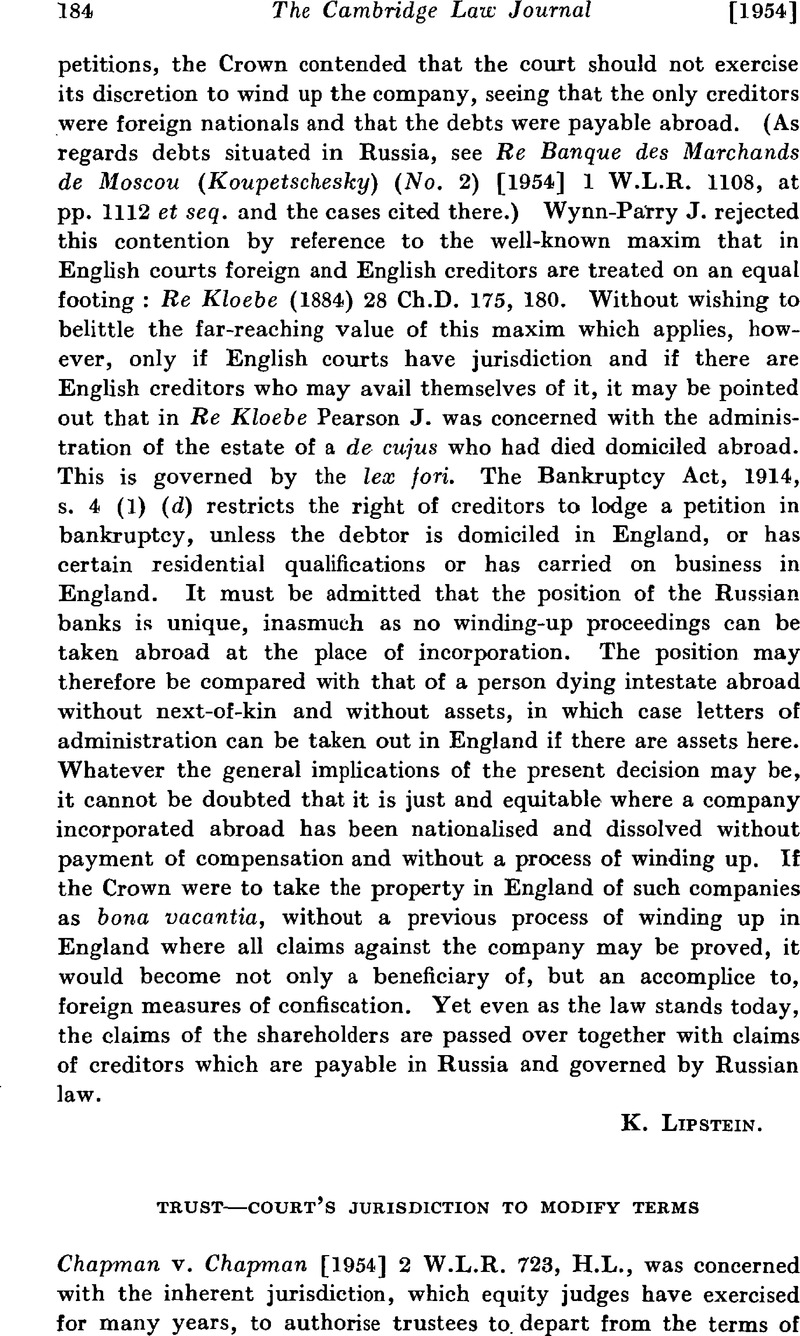No CrossRef data available.
Article contents
Trust—Court's Jurisdiction to Modify Terms
Published online by Cambridge University Press: 16 January 2009
Abstract

- Type
- Case and Comment
- Information
- Copyright
- Copyright © Cambridge Law Journal and Contributors 1954
References
1 See also the passage in Re Downshire S. E. [1953] Ch., at pp. 234–5, approved by the House of Lords in Chapman v. Chapman [1954] 2 W.L.E., at p. 746.
2 See, e.g., Re Downshire S. E. [1953] Ch. 238–9, per Everehed M.R.; Chapman v. Chapman [1954] 2 W.L.R. 738, per Lord Morton of Henryton. According to Kekewich J., in Re Tollemache [1903] 1 Ch. 459–60, the “most common” in his time was the sanctioning of advances out of capital for infant beneficiaries. This is not mentioned in Re Downshire or in Chapman v. Chapman—perhaps in consequence of s. 32 of the Trustee Act, 1925.
3 See the wide dictum of Turner L.J. in Brooke v. Mostyn (1864) 2 De G.J. & S. 373, 415, quoted (inter alia) in Re Wells [1903] 1 Ch. 848, 854, and in Chapman v. Chapman, supra, at p. 748.
4 Sub nom. Re Chapman's Settlement Trusts [1953] Ch. 218.Google Scholar
5 Including perhaps advancement: see footnote 2, ante.
6 A recent illustration of the latter is Re Lord Hylton's Settlement [1954] 1 W.L.E. 1055, C.A.: there, Harman J. having decided a disputed question on the construction of the settlement, the defendant appealed; and, before the appeal was heard, a compromise was proposed for saving estate duty. The Court of Appeal dismissed the appeal and (on behalf of infants and others) approved the compromise.
7 [1953] Ch. 218.
8 It has no effect, for instance, upon s. 25 of the Matrimonial Causes Act, 1950: see Thomson v. Thomson [1954] 3 W.L.E. 241.
9 [1953] Ch. 218.
10 Ibid., pp. 248 ct seq.
11 Ibid., pp. 252–60.


